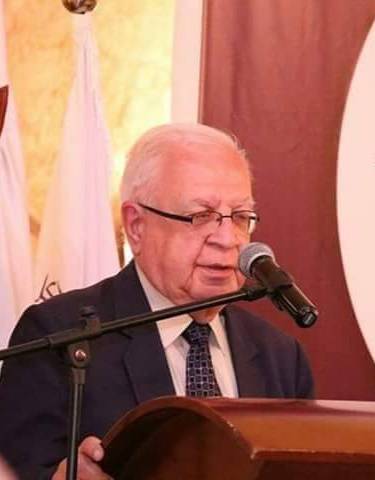The Coordinator of the Meeting of National Parties and Forces in Tripoli, Abdullah Khalid, expressed his astonishment at seeing secularists raising the banner of citizenship under the auspices and leadership of religious figures while simultaneously rejecting resistance. He noted that at a time when there should be a search for common denominators to expedite the formation of a government that constitutes the gateway to starting the rescue and reform process, this behavior is perplexing.
In comments about recent developments in Lebanon, reported by the National News Agency, Khalid stated, "It is hard for one to believe what the naked eye sees, represented by a group of contradictions that reflect a desire to maintain the old manifest in the sectarian system." He continued, "Secularists are raising the banner of citizenship under the guidance of religious leaders while simultaneously rejecting resistance, at a time when there should be a focus on finding common grounds to hasten the formation of a government that signals the beginning of rescue and reform efforts."
Khalid indicated that the economic and social collapse has begun, presenting the Lebanese people with a choice between dying of hunger or through COVID-19, coupled with a suspicious rise in the dollar exchange rate, which has deprived the Lebanese pound of more than 80% of its purchasing power. This decline is attributed to the insistence on corruption, political quotas, waste, looting of public funds, refusal to enact the capital control law, hindrance of financial forensic audits, insistence on borrowing, selling off what remains of institutions, and rejecting support for the productive economy.
The Coordinator of the Meeting of National Parties and Forces in Tripoli stated that in this climate, urgent issues concerning the ordinary citizen, particularly the poor, the laborers, and those with limited incomes, are being overshadowed by less than legitimate concerns that increase tensions among the Lebanese during a phase that calls for greater solidarity and agreement, proposing common grounds that serve the public interest and distance themselves from individualistic and personal interests. This situation has been accompanied by external pressures reflected in blockades and economic sanctions, coinciding with attempts to impose realities regarding the demarcation of maritime and land borders with the occupied Palestinian territories.
Khalid noted that we have started to hear about serious efforts to revert the country to the pre-Taif Agreement state and the revival of proposals regarding Resolution 1559 and other international resolutions. There has been a repeat discussion of federalism, neutrality, resistance weapons, and the international conference under the auspices of the United Nations that applies Chapter VII, which undermines the concept of national sovereignty.




